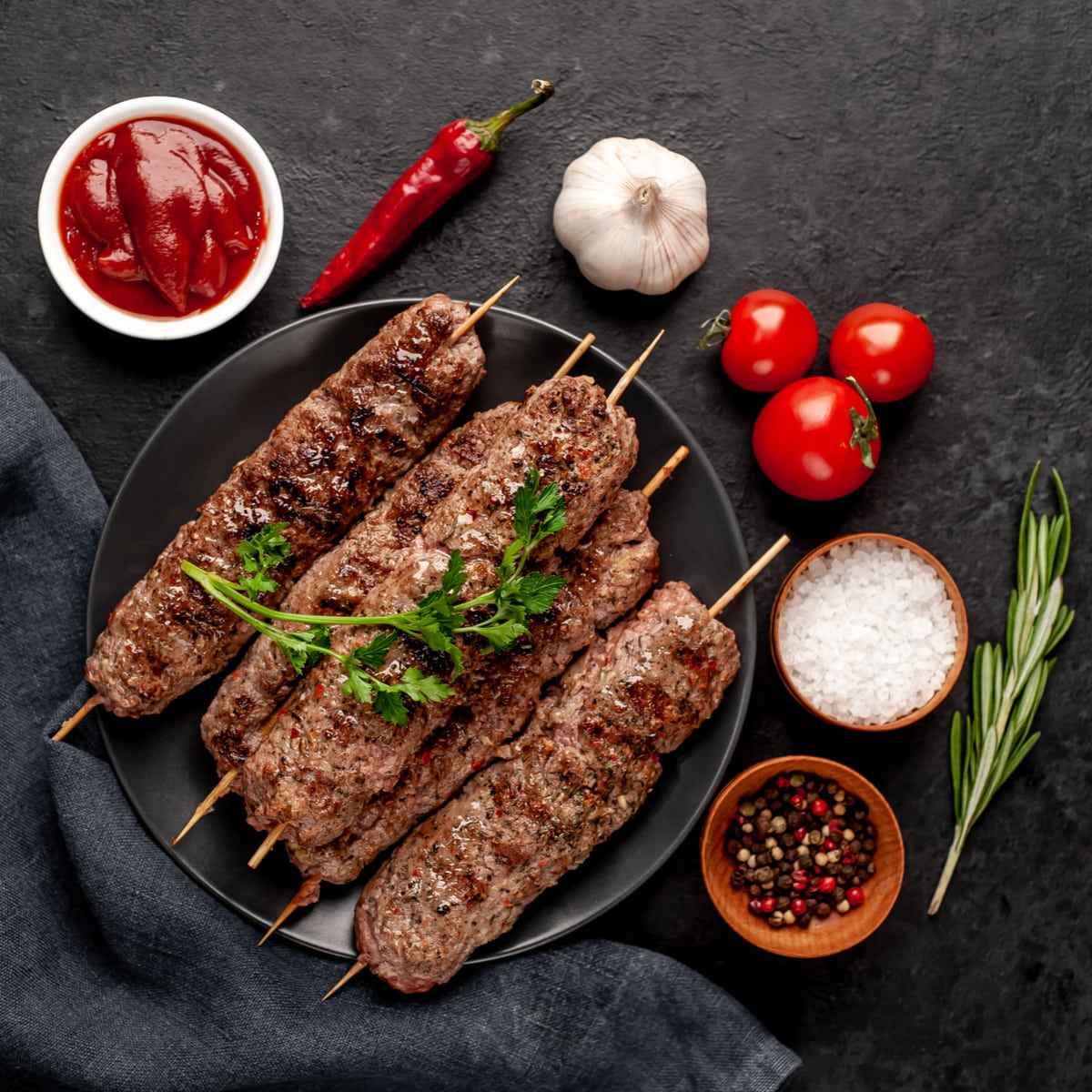A Global Celebration of Kebab
World Kebab Day, celebrated on the second Saturday of July, is a tribute to one of the most popular and versatile dishes enjoyed across the globe. From its origins in ancient Middle Eastern cultures to its widespread popularity in contemporary cuisine, kebabs have become a cherished culinary tradition in many cultures.
The term “kebab” (or “kabob”) comes from the Arabic word “kabab,” which refers to grilled meat. The practice of grilling meat on skewers dates back thousands of years and has been a staple in Middle Eastern, Mediterranean, and South Asian cuisines. Originally, kebabs were made with lamb or beef, but modern variations include chicken, fish, and even vegetarian options.
The Varieties of Kebab
One of the reasons kebabs have achieved global popularity is their incredible versatility. Here are some of the most well-known types of kebabs:
- Shish Kebab: Originating from Turkey, this kebab features marinated chunks of meat, such as lamb or beef, skewered and grilled. Often served with vegetables and rice or pita bread, shish kebabs are a popular choice for grilling enthusiasts.
- Doner Kebab: A staple of Turkish cuisine, doner kebab is made from seasoned meat (usually lamb, chicken, or beef) cooked on a vertical rotisserie. Thinly sliced and often served in a pita or flatbread with vegetables and sauces, doner kebabs are a favorite street food in many countries.
- Kofta Kebab: This type of kebab features spiced minced meat (often lamb or beef) formed into patties or sausages and grilled. Kofta kebabs are popular in the Middle East, India, and North Africa and are often enjoyed with a variety of dips and sauces.
- Seekh Kebab: A popular dish in South Asia, seekh kebabs consist of spiced minced meat (usually lamb or chicken) molded onto skewers and grilled. They are typically served with naan bread and a variety of chutneys.
- Vegetarian Kebabs: Modern kebab variations include vegetarian options, such as those made with marinated tofu, seitan, or a variety of vegetables and fruits. These kebabs offer a delicious alternative for those who prefer plant-based diets.
Cultural Significance of Kebabs
Kebabs hold a special place in many cultures and traditions. In the Middle East, kebabs are often enjoyed during communal gatherings and festivals. In South Asia, kebabs are a popular feature at weddings and special occasions. In Mediterranean countries, kebabs are a common street food and are often served with fresh salads and dips.
The global appeal of kebabs reflects their adaptability and the universal enjoyment of grilled, flavorful meat. World Kebab Day is an opportunity to explore the diverse world of kebabs and appreciate the culinary traditions that bring people together through food.
Ways to Celebrate World Kebab Day
- Enjoy a Kebab Feast: Whether you’re cooking at home or dining out, indulge in your favorite type of kebab. Consider trying different varieties to experience the full range of flavors and styles.
- Host a Kebab Grill Party: Gather friends and family for a kebab-themed barbecue. Provide a variety of meats, vegetables, and marinades to create a diverse and enjoyable dining experience.
- Explore Global Recipes: Experiment with kebab recipes from different cultures. Look up traditional recipes from Turkey, India, or the Middle East and try making them at home.
- Visit a Local Kebab Restaurant: If you’re not up for cooking, visit a local restaurant known for its kebabs. It’s a great way to support local businesses and enjoy high-quality dishes.








